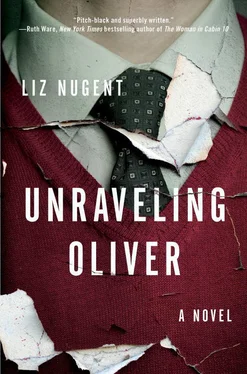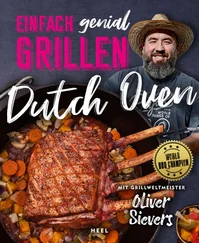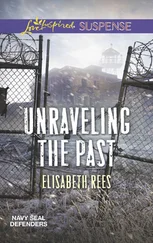Notwithstanding the harrowing end to my summer, I also returned a different person. Stepping out of the closet was liberating, and there was no way I could go back. My mother got to hear about the company I was keeping and was of course scandalized—threatened to tell my father, call the parish priest; but it was too late. My summer in France had freed me and given me a confidence I never had before. The fire and its devastating consequences made me realize that life was too short to spend any part of it in denial of the truth. I felt at peace in my new skin, almost reborn. I was determined not to be ashamed, despite what the church or the law said.
My mother was trying her level best to get me back into the closet, but I just wasn’t having it. Eventually she did tell my father. He was appalled, threatened to disown and disinherit me, and suggested that Laura didn’t want to come home because she was ashamed of me. That hurt. I begged for understanding. This is who I am, et cetera, all to no avail. He spoke of the disgrace that I would bring on the family and the humiliation to him personally. I was genuinely sorry for that. I promised him that I would be discreet about my activities, but he was disgusted and ranted about having worked hard all his life only to be confronted with the fact that he had raised a nancy-boy.
In retrospect I must be grateful that my father wasn’t a violent man. Lots of fathers were. Dad was hugely disappointed, but it was hard for him and I wonder now if it might not have been better to hide my “depravity” from my family. Later events would, however, eclipse my coming out and thankfully reunite us as a family, what was left of us.
In November 1973, Father Ignatius was summoned to the house. I didn’t know it until he turned up, but I was aware that there was a flurry of cleaning, dusting, and vacuuming activity for a week before his arrival. Silver was polished, and the “good” plates and linen tablecloths appeared from wherever they had been quarantined since the previous Christmas Day. I was ushered into our rarely used front room on a Saturday morning, presented to Father Ignatius, and left alone with him. I was furious at being tricked into this encounter and I wasn’t quite sure what to expect. He wasn’t the fire-and-brimstone type—a relatively new appointee to the parish, he was in his early thirties, with a gentle way of speaking. His embarrassment was palpable, as, I’m sure, was mine. After some awkward pleasantries, there was a pregnant silence that threatened to give birth any minute. Eventually I broke its waters by apologizing for having him brought here.
“I suspect that my parents have asked you to come here because I think I’m a homosexual,” I said, and, feeling brazen, added, “In fact, I don’t just think it.”
There was a pause while he coughed unnecessarily and readjusted himself on the leather armchair. It squeaked absurdly as if he had farted, and he quickly and deliberately moved again, causing another squeak, to make it clear that it was the chair and not him. I have eschewed leather furniture ever since.
“It’s a sin, you know.”
“I know, Father.”
“Will you swear never to do it again?”
“But, Father, you don’t seem to understand. It’s not just a matter of it , of sexual intercourse, it’s a fundamental part of who I am.”
“But it’s a sin!”
“I know, Father.”
We went around in circles for a while. I declared that even if I never did it again, I wouldn’t be able to stop myself from thinking about it or indeed the man who might perform it with me. He reddened and declared that thinking about it was a sin too and suggested that I could think about flowers or trees instead. I asked him why it was a sin if I wasn’t hurting anyone, and he appeared confused.
“What about getting married? Having children?”
“I don’t want children.”
“What if you change your mind?”
“About having children or about being gay?”
“The first one.”
“What if you change your mind about having children?”
Silence. He wasn’t programmed for that answer.
With another priest, my question to him could have been seen as the height of insolence, but he had a soft way about him and a style that was not intimidating in the least. I felt emboldened.
“I won’t,” he said eventually.
“Neither will I.”
“What about the other thing?”
“Being gay? Changing my mind isn’t an option! It’s not a decision I have made. I have only decided not to hide it anymore. Not to hide who I am. I have never been interested in women, as much as I have tried. Don’t you think it’s unlikely that I might start now?”
“Me neither,” he said.
I thought he had lost the train of our conversation. I wasn’t sure what exactly he was agreeing with me about, and then suddenly he buried his head in his hands and broke down, grabbing a handkerchief and stifling his sobs.
I was stunned at this turn of events and found myself consoling him.
“What is it? Look, if I’ve upset you, I apologize, I never meant…”
When he looked up at me imploringly, his long eyelashes glistening wetly, I understood immediately.
“You’re not… ?” I said. It seemed like it would be blasphemous to even suggest it.
He nodded miserably.
Dermot (his given name) had joined the priesthood in a desperate attempt to escape the reality of his sexuality, as if by ignoring it, he could pretend it wasn’t there. The seminary, he later told me, was full of young gay men, most of whom found solace in each other, but he, raised in a more severely Catholic home than my own, was determined not to yield to his inclinations. My confession to him seemed to open the floodgates, and I listened as he recounted his years of utter loneliness, repression, and frustration. We talked for three hours. Mum was delighted when we eventually emerged.
The afternoon concluded with me agreeing to meet him for a drink in a small hotel in Bray the following Sunday after mass. It was clear that Dermot was struggling with the priesthood and with his faith as much as with his sexuality. The church condemned us, and yet there were other things going on that the church was ignoring, the full extent of which we have only recently learned. Dermot was aware of some incidents and had reported them and seen the perpetrators moved or promoted and the “misdemeanor” covered up. He felt that if he expressed his sexuality, it would make him as bad as the abusers, and it took some time for me to convince him that there was a world of difference between two consenting adults engaging in a physical relationship and an older man in a position of power using that power to interfere with a child in some cases not old enough to understand what was being done to them. Dermot went to confession over and over again and spoke to his bishop, tried to be honest with them. They more or less told him to shut up about everything or face a transfer to some godforsaken spot on the globe. After six months of soul-searching, he quit the priesthood altogether and reverted to his given name, Dermot. We had become close friends and confidants by then, and not long afterward we became lovers. Before Dermot, I had never thought of settling down with one man. I assumed that, as a gay man, my relationships would probably be fleeting sexual encounters, but I found to my surprise that I loved him deeply and wanted him as a permanent fixture in my life. Thankfully, Dermot felt the same way, although it took him a bloody long time to admit it.
But I am skipping ahead. Once I had come out to my parents in the autumn of 1973, I am not sure why I felt the need to, but I wrote to Oliver to tell him officially that I was gay. I think I wanted to explain myself to someone who had known me before and also to excuse the jealousy I felt toward him and Laura that summer. I wanted him to know that he couldn’t “dislike queers” because I was one, and I considered him a friend. I think I probably should have been sober when I wrote the letter. I cringe now when I think of it. I received a reply within the week. I don’t know exactly what I had wanted or expected, but he admitted that my declaration in the summer was no surprise to him, apologized for trying to set me up with Madame Véronique, wished me well in my life, and hoped that I would meet a good man. It seemed clear to me that he was drawing a line under our friendship.
Читать дальше












